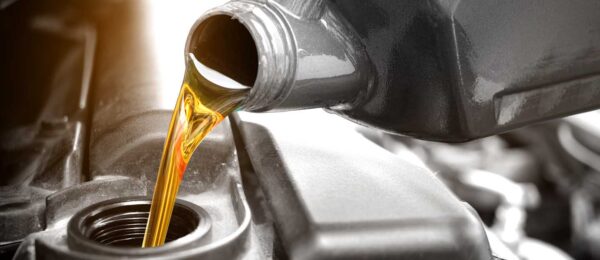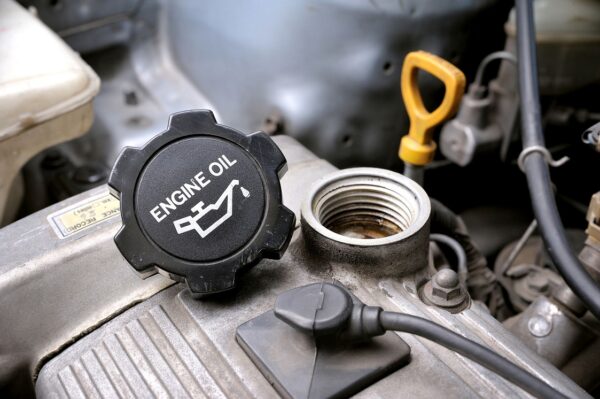Have you ever wondered why cars sometimes puff out smoke like an old steam engine? That’s a sign that they’re burning oil. But firstly, what causes cars to burn oil? Let’s explore this mystery together! Your car is a combination of different parts working together, and oil plays a crucial role. However, some parts, such as the seals and gaskets, can wear down. This allows oil to sneak in places it shouldn’t be. As a result, that oil burns along with the fuel, creating those puffs of smoke you see. Now, let’s check out why your car may burn oil. Let’s go!

1. Worn Out PCV Valve
One essential engine part that removes dangerous gasses produced during engine combustion is the positive crankcase ventilation (PCV) system. In order to accomplish this, extra gases are sent back into the combustion chamber, where they are burned once more before being expelled along with the exhaust. However, there may be substantial oil blowback if the PCV system becomes clogged. Oil is drawn into the engine through the air intake, not out of the combustion gasses. Usually, changing the PCV valve is usually all needed to fix this problem.
2. Broken Piston Rings
If you’re still wondering what causes cars to burn oil, here’s another one. The wiper and oil-control rings prevent oil from entering the combustion chamber. A high rate of oil consumption results from the oil escaping into the chamber, which burns if one or both chambers are worn out or cracked. Carbon deposits subsequently develop on the cylinders and piston rings due to the combustion. As a result, blow-by gases enter the crankcase and collect oil vapor.
3. Wrong Oil Type
Oil burning may rise if the incorrect kind of oil is used. Not every type of oil is created equal. Some are less viscous and thicker than others. This type of high-viscosity oil is less prone to leak past seals, including piston rings. In any case, you should only use the oil that your car manufacturer recommends.
4. Low-Quality Oil
Engines and their parts are vulnerable to significant harm from low-quality engine oil. For example, their additive system, which includes detergents and anti-wear chemicals, is low-quality. This inevitably has negative effects that can occasionally be unavoidable. For example, poor-quality oils deteriorate more quickly at high working temperatures. When viscosity is lost, the thickness of the oil coating decreases, increasing wear and friction. Consequently, the oil is oxidized, leading to more degradation.
5. Bad Valve Seals
What causes cars to burn fuel? Bad valve seals is the answer. Another factor preventing oil from entering the combustion chamber is valve seals. Engine oil consumption results from some oil burning during combustion, which is necessary to lubricate and maintain the flexible nature of the seals. Newer engines should still burn less oil. When using a high-quality synthetic oil, you shouldn’t need to add a small amount of top-off oil between oil changes. However, just to be safe, make sure to check your oil frequently.
6. Oil in the Turbocharger
If your car has a turbocharger, you should keep a watchful eye out for wear or breakage in your seals. Damaged seals allow oil to seep past the bearing and into the turbocharger’s exhaust, which is on the colder side, or the compressor, which is the warmest part leading to the intake. In either case, the oil burns and destroys the bearings, which leads to turbo failure.
7. Engine Overheating
If you let your car’s engine run too hot, it can start burning oil. The radiator and coolant in your car should normally regulate the engine temperature. However, issues that permit the engine temperature to climb above “normal” bounds may occur. The engine may burn oil if it overheats. You may also want to check other reasons why your car overheats.
8. Blown Head Gasket
If you’re wondering what causes cars to burn oil, here’s one reason. One major reason for oil consumption is a blown head gasket. Big seals called head gaskets are located in the space between the cylinder head and the engine block. There are numerous diverse passageways within it, such as those for coolant, oil, and combustion gases. If the head gasket on your car fails, these fluids and gases could combine, and your car may burn oil if there is an oil leak into the combustion chamber.
Signs That Your Car is Burning Oil
It’s essential to be vigilant to prevent further damage to your vehicle. Here are some of the things you may notice if your car is burning oil:
1. Coolant Level Drops
Oil spills on the ground can show leaks. Yet, if the oil level steadily drops without any visible outward leaks, there is a clear indication that the oil is being used internally. Your engine is now consuming more coolant than necessary, increasing oil consumption.
2. Low Oil Pressure Light or Gauge
After knowing what causes cars to burn oil, here’s one sign to know if it’s happening. Your vehicle’s dashboard may suggest that your oil pressure is too low. Most cars feature an illuminated low oil pressure indicator, and some even have an oil pressure gauge. If the light or gauge indicates low oil pressure, you must stop the vehicle and look into the issue.
3. Engine Misfire
This strange symptom is usually a sign that your engine is losing oil. If your engine has a rough idle and misfires occasionally, it’s probably because engine oil is consumed during the combustion process and clogs your spark plugs. Oil burning happens when there is insufficient coolant to keep the engine at a steady temperature and can result in a misfire.
4. Blue-Tinged Exhaust
There are occasions when the exhaust from the tailpipe is faint blue if the engine is burning oil. This can be a sign of a significant issue because it takes a lot of oil in the exhaust to turn it blue.
5. Burning Oil Smell
A strong burned smell may arise if enough oil comes into contact with heated engine surfaces.
How to Fix the Problem of Oil Burning in Cars
Since you know what causes cars to burn oil, it’s time to find the solution. Identifying the source of the oil usage is the first step toward solving the issue. Most of these problems are preventable with routine auto maintenance and awareness of warning lights. Ensure you use the oil recommended for your car’s make and model. Consult the user manual to confirm that the viscosity is accurate.

Considering the irregularity of oil consumption, the best action is to monitor your oil level closely and, should your engine appear draining, have a mechanic check for leaks. Knowing how much an engine uses oil over years or thousands of miles can be helpful in identifying abrupt surges in oil consumption, which may point to an internal fault or leak.
No matter how small the oil leak is, you should always keep an eye on it and have it corrected as soon as possible to prevent further harm to your engine. It’s critical to address any leaks you discover straight immediately. Finally, you can save a lot of hassles by simply and affordably replacing a gasket or seal.
Conclusion
What causes cars to burn oil is often due to worn-out parts, like piston rings or valve seals, which allow oil to leak into the combustion chamber. However, note that maintenance can help prevent this issue and keep your car running smoothly.

